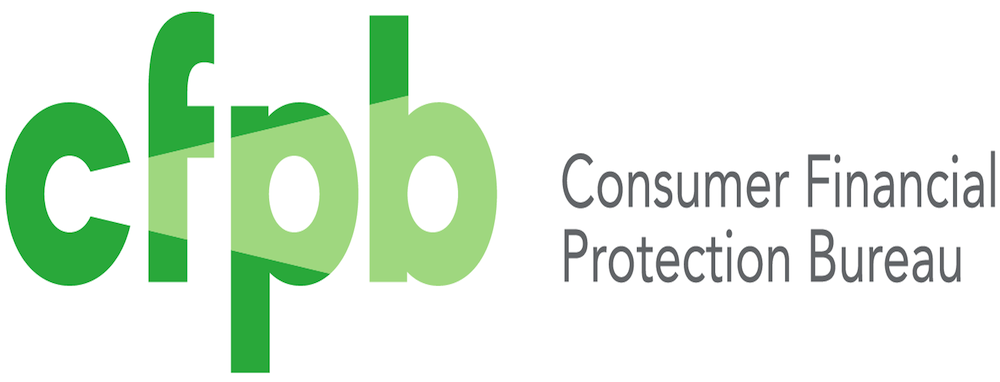
Three years ago, Elliot Feltner of Cleveland, Ohio, lost a building he inherited from his late wife’s father along with nearly $80,000 in equity when the Cuyahoga County Board of Revision (BOR) used an obscure Ohio law to seize the property in order to satisfy a tax delinquency. A team of attorneys representing Mr. Feltner has now asked the U.S. Supreme Court to rule on the constitutionality of the administrative foreclosure process that has had a devastating impact on residents of Ohio and more than a dozen other states.
In a Petition for Certiorari filed with the Court, former Ohio Attorney General Marc Dann of DannLaw, Lawrence G. Salzman, Joshua W. Polk, and Christina M. Martin of the Pacific Legal Foundation, and Andrew Engel assert that the BOR foreclosure process violates the Fifth Amendment’s Takings Clause, provisions of the Fourteenth Amendment, and sections of the U.S. Code because it does not give property owners the opportunity to seek and receive the equity that remains after a property is sold and the taxes, interest, and penalties due are paid.
“It’s well established that governmental entities have the power to take properties via public domain,” Dann said. “But government was never permitted to do so without compensating the owner for its value until states implemented administrative foreclosure procedures like the one used to confiscate Mr. Feltner’s property.”
“Under long-standing Ohio law, property foreclosed due to delinquent taxes is sold to the highest bidder at a public auction. The property owner is given notice of the impending sale, has time to pay the debt if they can, and receives any funds that remain after the amount owed is paid,” Dann noted. “The process the BOR uses to acquire properties for the county land bank eliminates the auction, significantly shortens the time afforded owners to resolve the delinquency and allows the land bank to keep any excess value. That’s both patently unfair and, as we are prepared to argue, blatantly unconstitutional.”
Dann and Engel first raised the constitutional issues when they petitioned the Ohio Supreme Court to order Cuyahoga County to compensate Mr. Feltner for the equity he lost in the sale. The Court denied the petition on procedural grounds, but Chief Justice Maureen O’Connor and Justices Patrick Fischer and R. Patrick DeWine all stated in concurring opinions that the Court should have addressed the constitutionality of the BOR foreclosure process. Justice Fischer called the situation “disconcerting” and said “the whole scheme is unsettling and just seems wrong.”
While disappointed with the Ohio Supreme Court decision, the comments made by the justices spurred Attorneys Dann and Engel as well as the Pacific Legal Foundation to ask the U.S. Supreme Court to intervene. “The principle that citizens should receive just compensation when government takes their property stretches all the way back to the American Revolution,” Dann explained. “And the Supreme Court has ruled on numerous occasions that withholding surplus proceeds from a property owner is a violation of the Fifth Amendment’s Taking Clause. We believe that historic principle and those rulings clearly make the BOR process unconstitutional.”
He noted that the High Court has allowed governments to keep excess proceeds from tax sales if mechanisms were in place that enabled property owners to contest the sale or seek compensation. But the Court has never ruled on whether a foreclosure process that does not offer people like Mr. Feltner a way to recover their equity passes constitutional muster. In addition, Supreme Courts and federal district courts in five states have held that governmental entities must distribute excess proceeds to property owners while federal and state courts in six others have ruled government can keep the money.
“This case gives the Court a perfect opportunity to determine if governmental entities violate the Takings Clause when they seize property worth far more than what is owed in tax debt and refuse to remit excess funds to property owners after the debt is paid,” Dann said. “Given the importance of the issue and the conflicts between state and federal courts we’re cautiously optimistic that the Justices will agree to accept the case and bring clarity to this extremely murky and contentious area of the law.”
For more information please contact Atty. Marc Dann at 216-373-0539 or via email: [email protected]
BACKGROUND
Mr. Feltner’s case shines a distressing spotlight on the BOR foreclosure process. In 2017 after enduring years of personal tragedy and severe health issues, he began the arduous work of putting his affairs in order. That is when he learned the body shop he had inherited from his late father-in-law was encumbered by more than $65,000 in delinquent property taxes, penalties, interests, and costs he could not afford to pay. Fortunately, the property was worth more than he owed. So, he put it on the market and found a buyer willing to pay an amount that would enable him to satisfy the tax debt and earn a profit on the sale.
As he prepared to close, however, the deal fell apart because the BOR had, without his knowledge, foreclosed on and seized the property, which was valued at $144,000. The BOR handed it over to the land bank which then gave it to a private company for nothing. Mr. Feltner never had the opportunity to stop the foreclosure or recover the nearly $80,000 in equity that remained after the tax debt was paid. But, as his attorneys note, Mr. Feltner was not the only loser. The BOR seizure also wipes out the property tax debt so schools and other local governmental entities did not receive one penny of the $65,000 they were owed.
The Petition, media reports, as well as a number of academic studies reveal that what happened to Mr. Feltner is not an isolated incident. Research conducted by the Ohio Center for Journalism found that more than $11.25 million in taxes and $77 million in equity were erased by administrative foreclosures in Ohio in 2019 alone. That figure is dwarfed in the state of Massachusetts where, according to U Mass law professor Ralph Clifford, approximately $56,000,000 is unconstitutionally appropriated from taxpayers each year. The situation is similar in the other states that permit administrative foreclosures.
 A lot has happened since we issued our first COVID-19 on March 13. In our tenth update we’ll take a look at recent developments, discuss impending challenges and opportunities, issue a couple warnings, and dispense some sage advice…
A lot has happened since we issued our first COVID-19 on March 13. In our tenth update we’ll take a look at recent developments, discuss impending challenges and opportunities, issue a couple warnings, and dispense some sage advice…
 The moratorium on foreclosures imposed at the beginning of the COVID-19 crisis are coming to an end in some Ohio counties and will lapse for federally backed mortgages at the end of August. That means sheriff’s sales will resume soon.
The moratorium on foreclosures imposed at the beginning of the COVID-19 crisis are coming to an end in some Ohio counties and will lapse for federally backed mortgages at the end of August. That means sheriff’s sales will resume soon. Today it is estimated that more than 8 million Americans, including tens of thousands of Ohioans, are behind on their rent payments and may soon be evicted from their homes. This number could rise substantially when the CARES Act’s Pandemic Unemployment Insurance payments sunset at the end of July.
Today it is estimated that more than 8 million Americans, including tens of thousands of Ohioans, are behind on their rent payments and may soon be evicted from their homes. This number could rise substantially when the CARES Act’s Pandemic Unemployment Insurance payments sunset at the end of July. Finally, I would like to extend a personal invitation for you to join me on August 5 for the premiere of “The Con,” a four-part series about the 2008 fraud and corruption-fueled collapse of America’s housing market. I’m both proud and humbled to say the series highlights the steps I took as Ohio Attorney General and at DannLaw to hold those responsible for the crisis that led to 10,000,000 families losing their homes accountable for their actions. The series provides a lesson for the risks we face as we hurtle toward a pandemic-related recession.
Finally, I would like to extend a personal invitation for you to join me on August 5 for the premiere of “The Con,” a four-part series about the 2008 fraud and corruption-fueled collapse of America’s housing market. I’m both proud and humbled to say the series highlights the steps I took as Ohio Attorney General and at DannLaw to hold those responsible for the crisis that led to 10,000,000 families losing their homes accountable for their actions. The series provides a lesson for the risks we face as we hurtle toward a pandemic-related recession.
 aninger, the unqualified anti-consumer political hack Trump appointed to succeed Cordray can be booted out the door 30 seconds after Joe Biden is sworn into office.
aninger, the unqualified anti-consumer political hack Trump appointed to succeed Cordray can be booted out the door 30 seconds after Joe Biden is sworn into office.